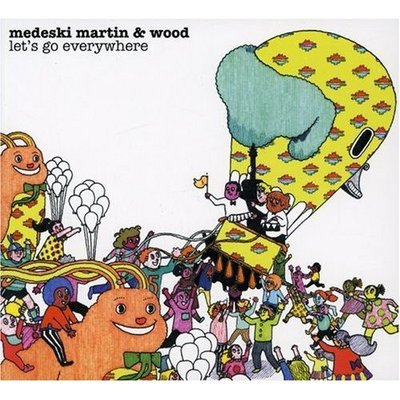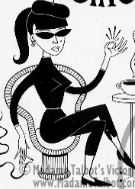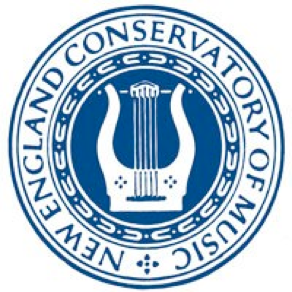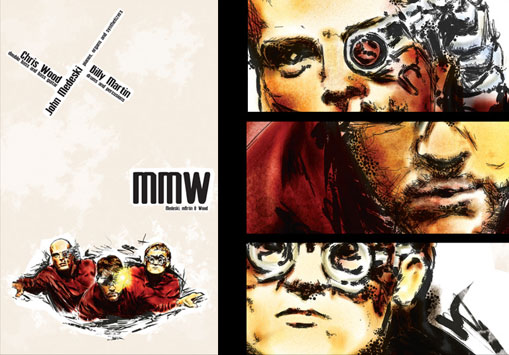
 BY ZIVIT SHLANK Medeski, Martin & Wood have been labeled everything from a jam band to an acid jazz trio to bunch of play-that-funky-music white boys. However, ask the boys of Medeski Martin & Wood how they’d characterize their sonic experiments and they’d say their wide open. Together now for two decades, the innovative sonic laboratory known as MMW continues to circumvent genre boundaries and invent a few new ones in the process. Infamous for their charismatic virtuosity and their infectiously evolving sound, several albums and countless tours, however you want to define them this much is certain: They play it loud and proud. The improvised grooves created by John Medeski’s lyrical-but-manic keys, Chris Wood’s pulsating bass, and Billy Martin’s dance-ready beats are at their most organic in live performance. In advance of tonight’s MMW’s concert at the Electric Factory with Antibalas Orchestra, Phawker chatted up bassist Chris Wood.
BY ZIVIT SHLANK Medeski, Martin & Wood have been labeled everything from a jam band to an acid jazz trio to bunch of play-that-funky-music white boys. However, ask the boys of Medeski Martin & Wood how they’d characterize their sonic experiments and they’d say their wide open. Together now for two decades, the innovative sonic laboratory known as MMW continues to circumvent genre boundaries and invent a few new ones in the process. Infamous for their charismatic virtuosity and their infectiously evolving sound, several albums and countless tours, however you want to define them this much is certain: They play it loud and proud. The improvised grooves created by John Medeski’s lyrical-but-manic keys, Chris Wood’s pulsating bass, and Billy Martin’s dance-ready beats are at their most organic in live performance. In advance of tonight’s MMW’s concert at the Electric Factory with Antibalas Orchestra, Phawker chatted up bassist Chris Wood.
PHAWKER: I know you first studied piano and clarinet, what or who ultimately got you on the bass? Was there a particular style or artist that grabbed your attention?
CHRIS WOOD: My brother, Oliver, even though he wanted to play guitar early on, he, for some reason, got an electric bass for Christmas one year. He played it for a while, but eventually got the guitar he wanted. He showed me what he learned on the bass. The first things we were checking out and listening to, was the Delta blues. We were both into a lot of styles of music like 60s Rock & Roll ala Hendrix, The Beatles, The Doors, The Who, The Rolling Stones. But we wanted to find out who inspired these guys. It was a natural thing to ask questions like “Well, who did they listen to? Where did they get these ideas from?” It was Muddy Waters, Lightening Hopkins, Jimmy Reed and people like that. I think those earlier recordings had a magical sound about them that kinda mystified me and made me wanna do it.
PHAWKER: So from doing your own musical explorations at home in Colorado, to moving east to study at the New England Conservatory of  Music, you had some really awesome mentors including the legendary bassist, composer, bandleader Dave Holland. As a young guy trying to earn his stripes, what was it like studying and playing with a master like Dave Holland?
Music, you had some really awesome mentors including the legendary bassist, composer, bandleader Dave Holland. As a young guy trying to earn his stripes, what was it like studying and playing with a master like Dave Holland?
CHRIS WOOD: It was great being around Dave, it was like osmosis, you know? He would come back from these tours with Herbie Hancock, Jack DeJohnette, and all these incredible musicians. In the beginning, it was a traditional student/teacher relationship, but as time went on, we basically just played together, traded solos. I really got the most out of that, just witnessing what he did from 2 feet away, trying it myself and, unconsciously, also learning how to find my own voice. I realized that while I loved what he did, I had to find my own way. And that was a hugely important lesson. In addition to Dave, I had some incredible teachers who weren’t bass players including pianist Geri Allen and drummer Bob Moses.
PHAWKER: From what I understand, it was through Bob Moses that you first hooked up with John Medeski, correct?
CHRIS WOOD: Yeah, Bob was the guy that told each of us about the other guy. I met John through Bob, John met Billy though Bob and eventually, all of three of us got together.
PHAWKER: You all coalesced in NYC and from there, how did the music making journey begin? Was it like a jam session you all participated in that by the end of it, you all looked at each other, awe-struck, and knew you had something special?
CHRIS WOOD: Well, kinda, yeah. John and I were doing all these gigs together at the Village Gate. We did weeklong gigs with various drummers. We wanted to do something different, and so we brought in Billy Martin. At that point, I hadn’t met Billy, but John had. Billy wasn’t a jazz drummer, but he was a great improviser. His grooves were as such that you could swing over the way he played. We knew it would work  and booked it, but it was definitely an experiment. We went to Billy’s place to rehearse, and yeah we just sat down our instruments, didn’t even discuss what we were going to do, and Billy just started playing. Then one by one we each joined in, and we ended up improvising one of the songs that would end up on our first record, Notes From The Underground, called Uncle Chubb. The horn parts on that tune, were transcribed from the first thing we ever played together as a group. Fortunately, we recorded that first meeting so we could go back and see what happened. But yeah, it was pretty instantaneous. We knew immediately that there was this chemistry between us.
and booked it, but it was definitely an experiment. We went to Billy’s place to rehearse, and yeah we just sat down our instruments, didn’t even discuss what we were going to do, and Billy just started playing. Then one by one we each joined in, and we ended up improvising one of the songs that would end up on our first record, Notes From The Underground, called Uncle Chubb. The horn parts on that tune, were transcribed from the first thing we ever played together as a group. Fortunately, we recorded that first meeting so we could go back and see what happened. But yeah, it was pretty instantaneous. We knew immediately that there was this chemistry between us.
PHAWKER: Jazz Drummer/Bandleader Art Blakey was famously quoted as saying “A name doesn’t make the music. It’s just called that to differentiate it from other types of music. “ Duke Ellington abhorred the term jazz, believed it encompassed a wide range. For those classicists who say that your music isn’t “jazz”, what do you have to say?
CHRIS WOOD: Honestly, I don’t care. Jazz or whatever you want to call it is a mysterious word. It’s not a very poetic way to describe a genre of music. In our experience it doesn’t define a genre so much as an audience, a certain kind of scene. We never considered ourselves part of that scene, it was just kind of written that way, calling us a “jam band “ “acid jazz” or whatever. All these words come and go and meanwhile, we’re just doing what we do. The labels are just weird and clumsy. Some people think Duke Ellington is “jazz”, while others think Kenny G is “jazz”. The terms are there to sell music, so people know what they’re buying. We call our stuff “homeless music” because it doesn’t fit into any one category.
PHAWKER: So the show at the Electric Factory with the Antibalis Afrobeat Orchestra…I know that you’ll each have a separate set, but, are there intentions of combining forces?
CHRIS WOOD: Yes, we’ll be doing something in the last set. MMW and Antibalis go way back, the horn section recorded with us on the album  Uninvisible. It’s going to be a lot of fun.
Uninvisible. It’s going to be a lot of fun.
PHAWKER: So for the uninitiated, what can a potential audience member expect? And will there be something special going on to commemorate MMW’s 20th anniversary?
CHRIS WOOD: I’d usually say expect the unexpected because most of the time, we don’t even know what’s going to happen. However this being our 20th anniversary, we’re taking requests from Facebook. We’ve got these lists of requests for each night of the tour. So for a change, we do know some of the songs we’re going to play, which is rare for us.
MEDESKI, MARTIN & WOOD PLAY THE ELECTRIC FACTORY TONIGHT WITH ANTIBALAS ORCHESTRA
